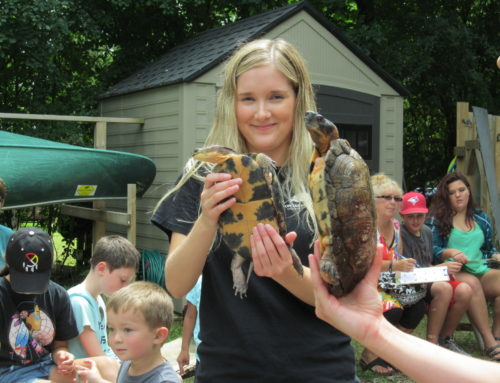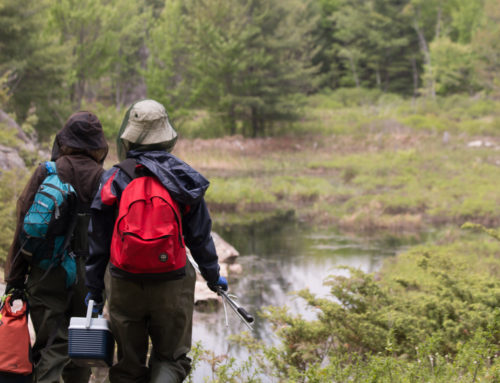In 2010, the majority of the cases were seen by Dr Carstairs at KTTC directly, or by Dr Hiltz at Sherbrooke Heights Animal Hospital. The Toronto Wildlife Centre also generously took in turtles when there was not a vet available in Peterborough. Recently, the Home Depot has donated money to be used to build a formal surgery at KTTC, which will be completed over the winter. We are also hoping to receive grant money for the remainder of the equipment that is needed to be self sufficient.
2010 was a formative year for staffing at KTTC. In the past, the centre has run entirely with the tireless efforts of many volunteers. In 2010, a grant from the Ontario Trillium Foundation allowed KTTC to hire a volunteer and education/outreach coordinator for a 30 week contract. Having a staff member available on site 5 days a week allowed for an even greater capacity to take care of injured turtles. Kate Siena took on this role with enthusiasm and experience, and helped to make 2010 a very successful year.
This position is being continued part time, thanks to a grant from the Johansen-Larsen Foundation. Lynda Ruegg has been hired in this role, and will no doubt do an excellent job throughout the winter.
2010 also saw KTTC qualifying for two summer students under the Canada Summer Jobs Program. Amanda Spence, a veterinary technician student at Seneca College, and Charity Justrabo, a wildlife tehcnician student at Fleming College, worked extremely hard all summer. Their energy and infectious work ethic brought the KTTC even closer to self sufficiency. Amanda performed daily treatments on hospital cases, and Charity worked on improving husbandry practices, along with the many husbandry volunteers who donated time to take care of the turtles. They were a super team. In addition, the KTTC hosted a veterinary technician final year student for a placement experience in the spring of 2010. Coral Pratt helped out both at KTTC and with Dr Hiltz, and has taken this experience to her new job. During the fall of 2010, KTTC also repeated its participation in the Canada World Youth program, hosting 2 volunteers for 3 months.
As a result of all this help, admissions to KTTC were the highest ever, and reached 242 turtles. In addition to the many adults admitted, KTTC staff and volunteers collected, inclubated and hatched eggs from female turtles that were admitted. Although we did not have an incubator, we still managed to hatch 102 babies. The majority of these were species at risk. The Toronto Zoo donated an incubator in the fall of 2010, which will allow even greater ability to hatch eggs in the 2011 season. It is hoped that we will receive grants in the near future to follow these babies once released, to track their survival and show that this ‘head starting’ is an effective conservation tool.
Watch a slideshow summary of 2010:








